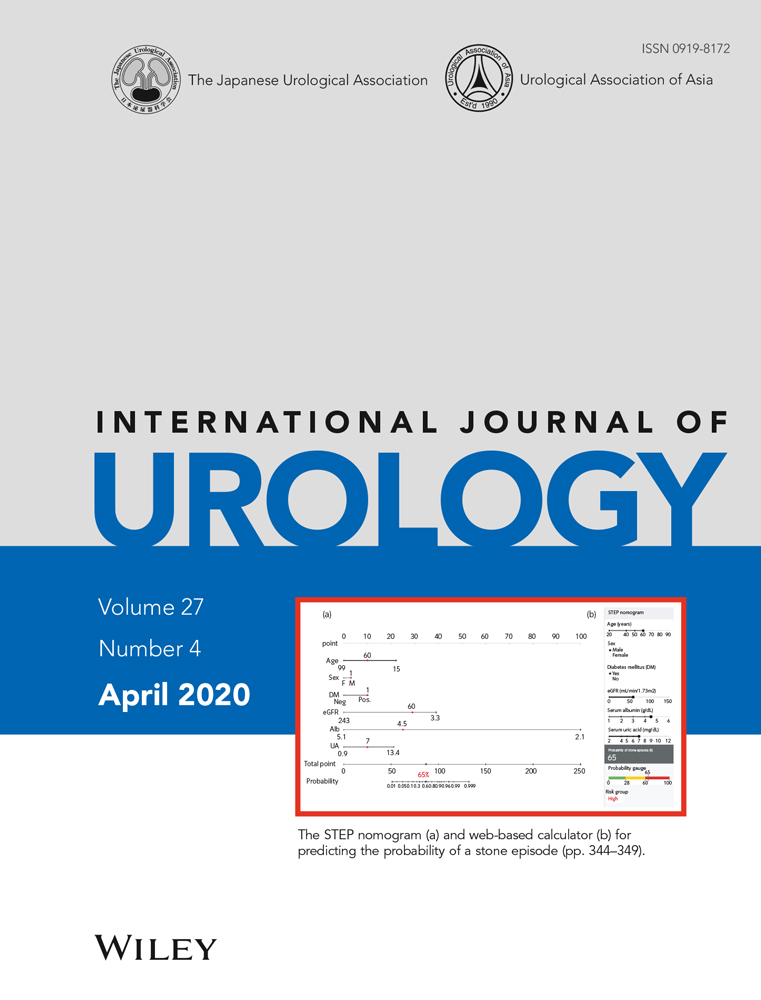Lipid abnormality, current diabetes and age affect erectile hardness: An analysis of data from complete medical checkups carried out at a single hospital
Abstract
Objectives
To investigate the correlation between the Erection Hardness Score and both erectile function and metabolic and lifestyle factors.
Methods
This study included 548 men who underwent a complete standard medical checkup at Yokohama Shin-midori General Hospital between 1 July 2016 and 31 August 2018, and answered the question about erectile hardness. The following variables were evaluated: age, erectile hardness on the Erection Hardness Score, erectile function on the Sexual Health Inventory for Men, current medical history (diabetes, hypertension, dyslipidemia, heart disease, stroke), metabolic risk factors (abdominal circumference, hyperglycemia, high blood pressure, lipid abnormality) and lifestyle factors. First, to examine the correlation between erectile hardness and erectile function, the mean Sexual Health Inventory for Men score by Erection Hardness Score grade was determined for each age group. Then, an analysis was carried out to examine the association between erectile hardness and age, current medical history, metabolic risk factors, and lifestyle factors.
Results
In each age group, a lower Erection Hardness Score grade was associated with a lower mean Sexual Health Inventory for Men score. Lipid abnormality, diabetes and age were independent risk factors for decreased erectile hardness.
Conclusions
Erection Hardness Score is a useful tool that can easily and accurately assess erectile function in the settings of medical checkups and clinical practice. Diabetes and lipid abnormality affect erectile hardness.
Conflict of interest
None declared.




